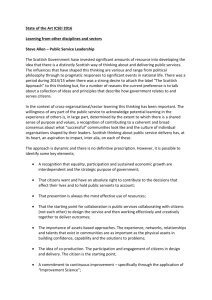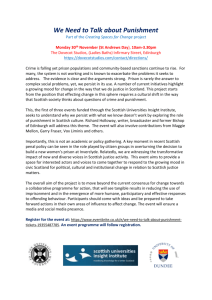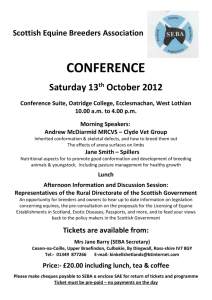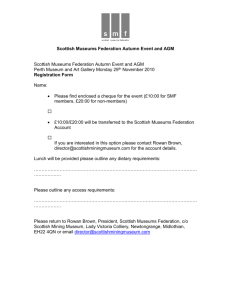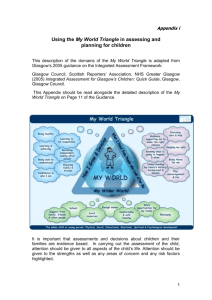the obituary for Andrew Thomson, 1936-2014
advertisement
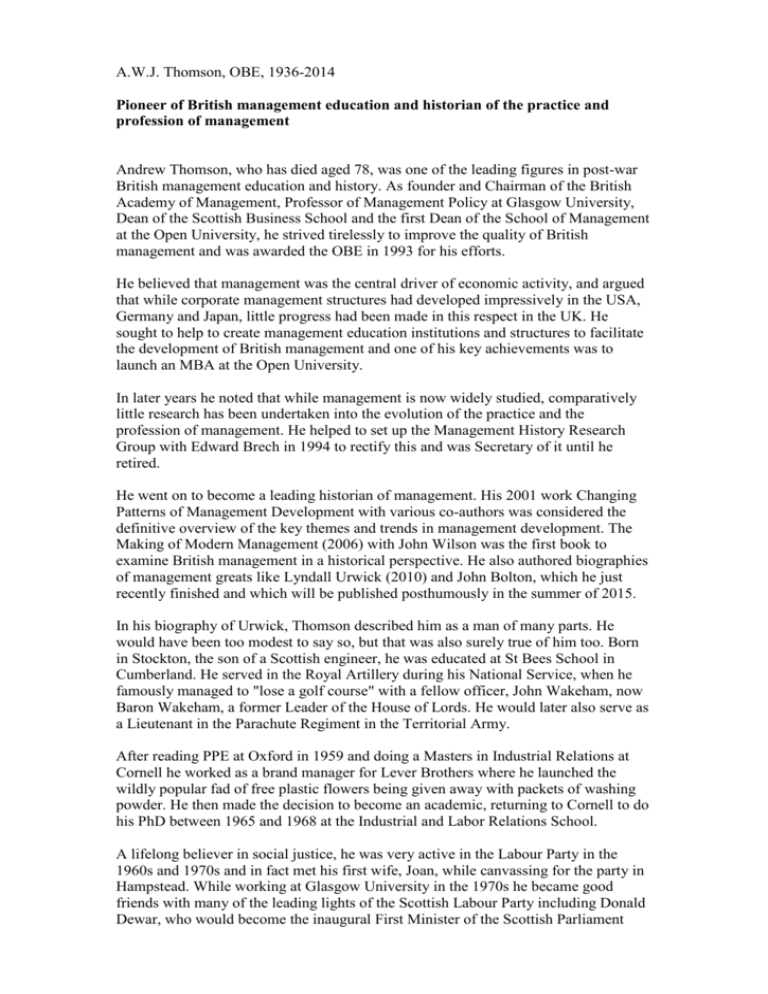
A.W.J. Thomson, OBE, 1936-2014 Pioneer of British management education and historian of the practice and profession of management Andrew Thomson, who has died aged 78, was one of the leading figures in post-war British management education and history. As founder and Chairman of the British Academy of Management, Professor of Management Policy at Glasgow University, Dean of the Scottish Business School and the first Dean of the School of Management at the Open University, he strived tirelessly to improve the quality of British management and was awarded the OBE in 1993 for his efforts. He believed that management was the central driver of economic activity, and argued that while corporate management structures had developed impressively in the USA, Germany and Japan, little progress had been made in this respect in the UK. He sought to help to create management education institutions and structures to facilitate the development of British management and one of his key achievements was to launch an MBA at the Open University. In later years he noted that while management is now widely studied, comparatively little research has been undertaken into the evolution of the practice and the profession of management. He helped to set up the Management History Research Group with Edward Brech in 1994 to rectify this and was Secretary of it until he retired. He went on to become a leading historian of management. His 2001 work Changing Patterns of Management Development with various co-authors was considered the definitive overview of the key themes and trends in management development. The Making of Modern Management (2006) with John Wilson was the first book to examine British management in a historical perspective. He also authored biographies of management greats like Lyndall Urwick (2010) and John Bolton, which he just recently finished and which will be published posthumously in the summer of 2015. In his biography of Urwick, Thomson described him as a man of many parts. He would have been too modest to say so, but that was also surely true of him too. Born in Stockton, the son of a Scottish engineer, he was educated at St Bees School in Cumberland. He served in the Royal Artillery during his National Service, when he famously managed to "lose a golf course" with a fellow officer, John Wakeham, now Baron Wakeham, a former Leader of the House of Lords. He would later also serve as a Lieutenant in the Parachute Regiment in the Territorial Army. After reading PPE at Oxford in 1959 and doing a Masters in Industrial Relations at Cornell he worked as a brand manager for Lever Brothers where he launched the wildly popular fad of free plastic flowers being given away with packets of washing powder. He then made the decision to become an academic, returning to Cornell to do his PhD between 1965 and 1968 at the Industrial and Labor Relations School. A lifelong believer in social justice, he was very active in the Labour Party in the 1960s and 1970s and in fact met his first wife, Joan, while canvassing for the party in Hampstead. While working at Glasgow University in the 1970s he became good friends with many of the leading lights of the Scottish Labour Party including Donald Dewar, who would become the inaugural First Minister of the Scottish Parliament after devolution. He also got George Robertson, later Lord Robertson and NATO Secretary-General, to join the Labour Party. His academic career developed rapidly at Glasgow with promotions from lecturer to senior lecturer and then reader before being appointed Professor of Business Policy at the recently formed Department of Management Studies in 1978. He published widely during this period and his works, with a range of co-authors, include The Nationalised Transport Industries (1973); The Industrial Relations Act (1975); Grievance Procedures (1976) and Collective Bargaining in the Public Sector (1978). He held various posts in the research councils, including Vice-Chairman of the Industry and Employment Committee of the Economic and Social Research Council from 1983 to 1985 and Chairman of the Joint Committee of the ESRC and the Science and Engineering Research Council. He also became a founder member of the British Academy of Management in 1987, and then its second Chairman from 1990 to 1993. In a non-academic capacity, he was a Director of the Scottish Transport Group from 1977 until 1984 and a Member of the Scottish Agricultural Wages Board from 1985 until 1999, taking a keen interest in Scottish agricultural and transport issues. He became the first Dean of the School of Management at The Open University in 1988 and directed a rapid expansion, including the launch of the MBA and a foray into international markets. When the Berlin Wall fell he took the school into Central and Eastern Europe by bartering management education for stocks of Hungarian wine. While at the OU he also published, with his second wife Rosie, one of the definitive works on management education, 'Managing People'. He suffered a personal tragedy when she died of an asthma attack in 1998. When he retired in 2001 he moved to New Zealand to be with his third wife, Angela. In his retirement there he put into practice, at a local level, what he believed so passionately about the importance of people helping each other and working together. He devoted himself ceaselessly to the community in the small town of Paihia in the Bay of Islands, having been President of the Bay of Islands Rotary Club, and playing an instrumental role in setting up the local community organisation Focus Paihia Community Trust which proved to be very effective in representing local interests. A Scot, he took a keen interest in the recent Scottish referendum, and regretted that the No campaign had not been making the emotional and historical case for the Union, instead concentrating almost exclusively on economic arguments. He himself felt both Scottish and British, but primarily Scottish not least because the class system was not so important in Scotland as in England, explaining that, "Scotland is more about Burns; 'the rank is but the guinea stamp, a man's a man for a' that'." He took great pride in his adopted homeland of New Zealand and recently was delighted that New Zealand had been declared best country in the world in a new international social progress index. There he was able to find expression for his passionate interest in other people and their welfare and could display the deep kindness and goodness which was the essence of the man. He died on Boxing Day, having suffered a sudden blood clot in his lungs. He is survived by his two sons Christen and Jack, his wife Angela and four grandsons. A.W.J. Thomson, born 26th January 1936, died 26th December 2014

